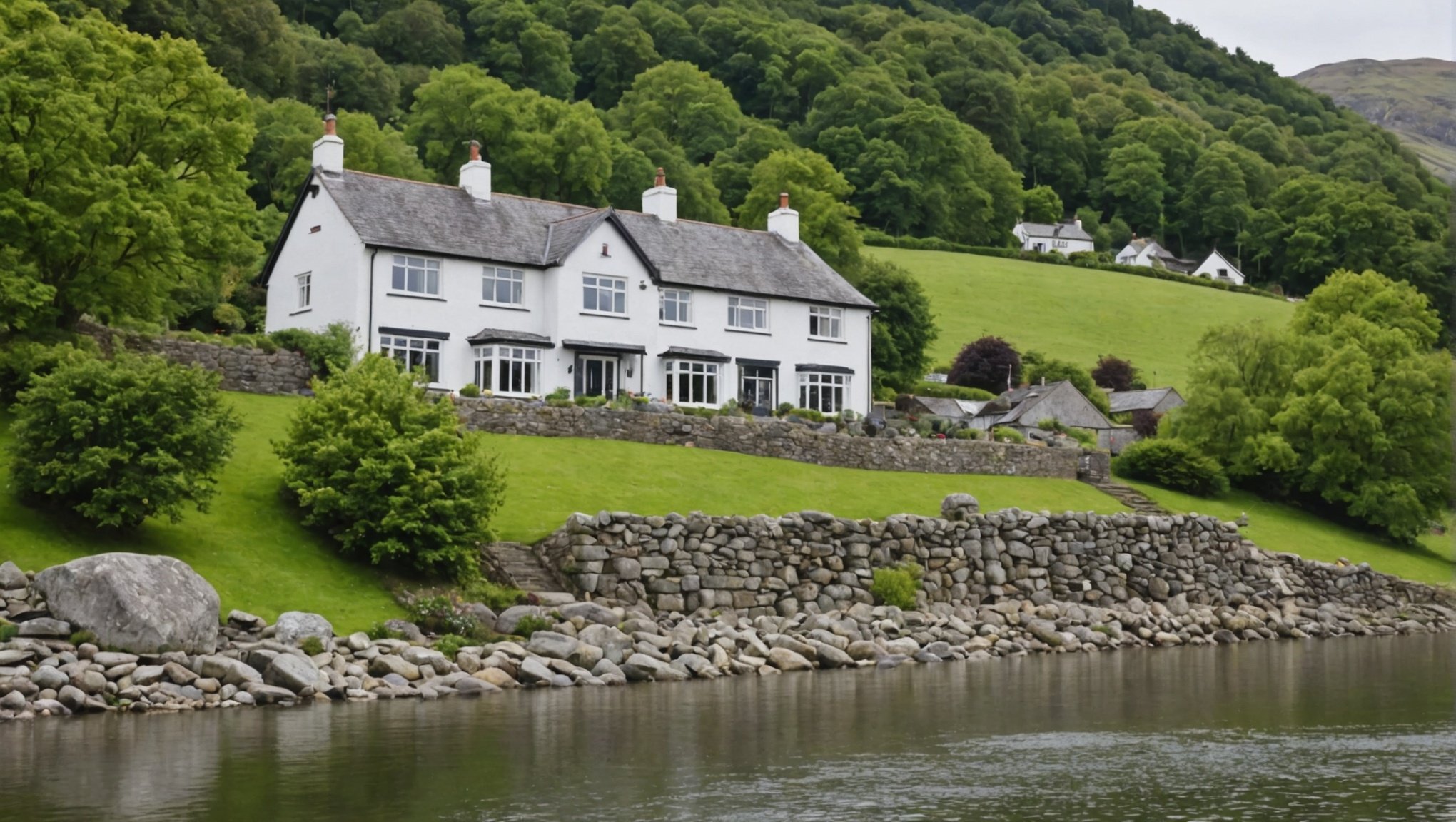Navigating Planning Refusals: A Homeowner’s Guide to Challenging Council Decisions in the Lake District
Understanding the Planning Process
When you decide to make significant changes to your home or property in the Lake District, whether it’s a building extension, a change of use, or a new development, you must navigate the complex world of planning permissions. The local authority, typically the county council or the local council, plays a crucial role in this process. Here’s how it works:
Submitting Your Application
Before you start any work, you need to submit a planning application to the local authority. This involves filling out the necessary forms, providing detailed plans and drawings, and sometimes conducting environmental impact assessments. The application will be reviewed against the local planning policies, including the National Park designation and Areas of Outstanding Natural Beauty (AONB) rules, which are particularly relevant in the Lake District.
Sujet a lire : Discover how rental guarantees can lead to financial independence in belgium
Public Consultation and Valuation
During the review process, the local authority will often consult with the public, neighboring residents, and other stakeholders. This is an opportunity for anyone with concerns to voice their opinions. Additionally, the authority may conduct a valuation of your property to ensure that the proposed changes align with the local development rights and do not negatively impact the biodiversity net gain of the area.
Dealing with Planning Refusals
If your planning application is refused, it can be a frustrating and costly setback. However, it’s not the end of the road. Here are some steps you can take:
Cela peut vous intéresser : Unlock financial freedom with rental guarantee belgium
Understanding the Reasons for Refusal
The first step is to understand why your application was refused. The council will provide a detailed explanation of the reasons, which could range from non-compliance with local planning policies to concerns about the impact on biodiversity or the character of the area. For example, if your property is in a rural area, special rules may apply, such as the requirement that any resale must be to someone who has lived or worked in the area for at least three years.
Appealing the Decision
If you believe the refusal was unjust or based on incorrect information, you have the right to appeal. In the UK, you can appeal to the Planning Inspectorate, an independent body that reviews planning decisions. Here’s a step-by-step guide on how to appeal:
- Gather Evidence: Collect all relevant documents, including your original application, the council’s decision notice, and any additional evidence that supports your case.
- Submit Your Appeal: You can submit your appeal online or by post. Ensure you meet the deadline, which is usually within six months of the decision.
- Await the Decision: The Planning Inspectorate will review your appeal and may conduct a site visit or hold a public inquiry. They will then make a decision based on the evidence presented.
### Key Steps in the Appeal Process
- **Submit Your Appeal**: Within six months of the decision.
- **Gather Evidence**: Include your original application, decision notice, and additional supporting evidence.
- **Await the Decision**: The Planning Inspectorate will review and may conduct a site visit or public inquiry.
- **Court Appeal**: If the appeal is refused, you can take the case to the court, but this is typically a last resort.
Legal and Professional Advice
Navigating the planning system can be complex, and seeking professional advice can be invaluable.
Consulting a Planning Expert
A planning consultant or a solicitor specializing in planning law can help you understand the reasons for the refusal and guide you through the appeal process. For instance, Steven Mlenak, a lawyer with extensive experience in land use and redevelopment, emphasizes the importance of detailed planning and legal guidance in such cases.
Understanding Case Law
Case law can provide precedents that may support your appeal. For example, if similar projects in the area have been approved, you can use these as examples to argue your case. A thorough understanding of relevant case law can strengthen your appeal and demonstrate that your proposal is in line with established legal principles.
Practical Considerations and Community Impact
When challenging a council decision, it’s crucial to consider the broader implications and community feedback.
Community Engagement
Engaging with the local community can be beneficial. If your proposal has support from neighbors and local groups, this can be presented as part of your appeal. Conversely, addressing any concerns raised by the community can help mitigate objections and improve the chances of a successful appeal.
Environmental and Biodiversity Impact
The Lake District is known for its natural beauty and biodiversity. Any development must ensure it does not harm the environment. Conducting thorough environmental assessments and demonstrating how your project will contribute to biodiversity net gain can be crucial in securing approval.
### Environmental Considerations
- **Biodiversity Net Gain**: Ensure your project contributes positively to the local biodiversity.
- **Environmental Assessments**: Conduct thorough assessments to identify potential impacts.
- **Sustainable Practices**: Incorporate sustainable practices into your development plan.
- **Community Feedback**: Address any environmental concerns raised by the community.
Financial and Valuation Aspects
Understanding the financial and valuation aspects of your project is essential.
Market Value and Valuation
The market value of your property can be affected by the planning decision. If your application is refused, it may impact the resale value of your home. Ensuring that your proposal aligns with local development rights and does not devalue neighboring properties is crucial.
Council Tax and Public Sector Funding
Changes to your property can also affect your council tax. Additionally, if your project involves public sector funding or grants, understanding the terms and conditions of these funds is vital. For example, the Home Energy Assistance Program (HEAP) in Sullivan County, NY, provides funding for heating equipment repairs and replacements, but such programs have specific eligibility criteria and benefits.
Rural Restrictions and Special Rules
The Lake District, with its National Parks and AONBs, has special rules that apply to property developments.
Right of First Refusal
If you buy a home in a rural area under the Right to Buy scheme, there may be conditions such as the right of first refusal, where the landlord has the option to buy back the property if you decide to sell within a certain period, typically 10 years.
Defective Dwellings
Some properties may be designated as defective due to design or construction issues. If your home falls into this category, your landlord must inform you, and you should carefully consider the structural condition and potential resale difficulties before proceeding with the purchase. and Next Steps
Challenging a council decision on planning can be a daunting task, but with the right approach, it is possible to achieve a favorable outcome.
Stay Organized
Keep all your documents and communications organized. This will help you track the progress of your appeal and ensure you meet all deadlines. Using a simple, expandable folder to label and sort your documents can be very helpful.
Seek Professional Advice
Consulting with a planning expert or a solicitor can provide valuable insights and guidance. They can help you navigate the complex planning laws and ensure your appeal is well-prepared.
Engage with the Community
Community support can be a powerful tool in your appeal. Engage with your neighbors and local groups to build support for your project.
By understanding the planning process, knowing how to appeal a decision, and considering the practical and financial implications, you can effectively navigate the challenges of planning refusals in the Lake District.
### Key Takeaways
- **Understand the Planning Process**: Know the steps involved in submitting a planning application.
- **Appeal the Decision**: If refused, gather evidence and submit an appeal to the Planning Inspectorate.
- **Seek Professional Advice**: Consult with planning experts or solicitors.
- **Engage with the Community**: Build support from neighbors and local groups.
- **Consider Financial and Valuation Aspects**: Understand how the decision affects your property’s market value and council tax.
- **Comply with Rural Restrictions**: Be aware of special rules in rural areas, such as the right of first refusal and defective dwellings.











